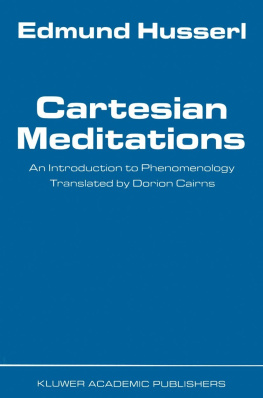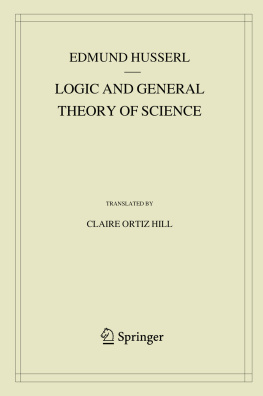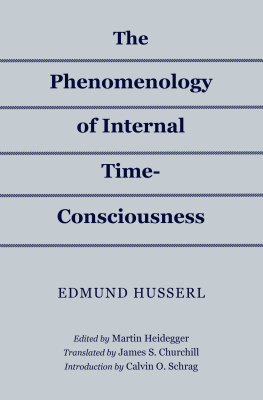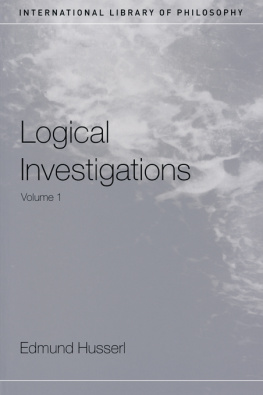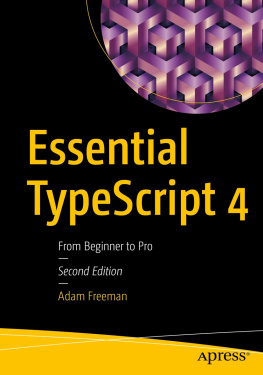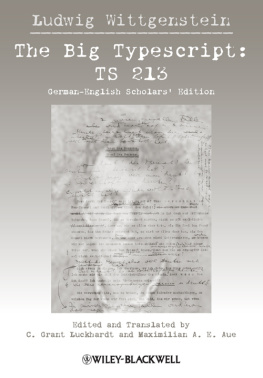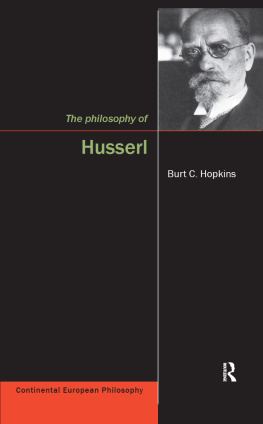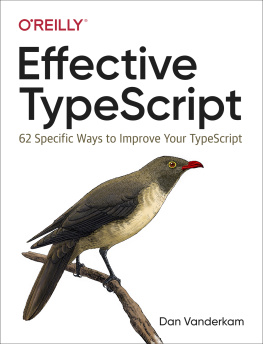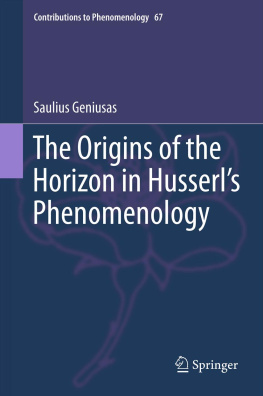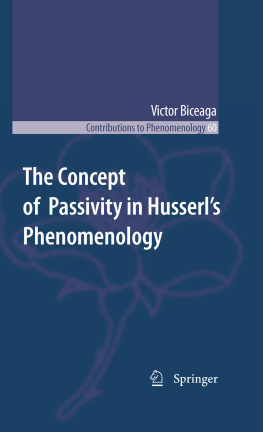Cartesian Meditations An Introduction to Phenomenology
Edmund Husserl
ISBN 978-90-247-0068-4 ISBN 978-94-009-9997-8 (eBook)
DOI 10.1007/978-94-009-9997-8
Kluwer Academic Publishers 1999
All Rights Reserved
No part of the material protected by this copyright notice may be reproduced or utilized in any form or by any means, electronic or mechanical, including photocopying, recording or by any information storage and retrieval system, without written permission from the copyright owner.
www.springer.com
Table of Contents

NOTE
This translation is based primarily on the printed text, edited by Professor S. Strasser and published in the first volume of Husserliana (Haag, Martinus Nijhoff, 1950). Most of Husserls emendations, as given in the Appendix to that volume, have been treated as if they were part of the text. The others have been translated in footnotes.
Secondary consideration has been given to a typescript (cited as Typescript C) on which Husserl wrote in 1933: Cartes. Meditationen / Originaltext 1929 / E. Husserl / fr Dorion Cairns. Its use of emphasis and quotation marks conforms more closely to Husserls practice, as exemplified in works published during his lifetime. In this respect the translation usually follows Typescript C. Moreover, some of the variant readings in this typescript are preferable and have been used as the basis for the translation. Where that is the case, the published text is given or translated in a footnote.
The published text and Typescript C have been compared with the French translation by Gabrielle Peiffer and Emmanuel Levinas (Paris, Armand Collin, 1931). The use of emphasis and quotation marks in the French translation corresponds more closely to that in Typescript C than to that in the published text. Often, where the wording of the published text and that of Typescript C differ, the French translation indicates that it was based on a text that corresponded more closely to one or the other usually to Typescript C. In such cases the French translation has been quoted or cited in a footnote.
Introduction
Edmund Husserl
1. Descartes Meditations as the prototype of philosophical reflection
I have particular reason for being glad that I may talk about transcendental phenomenology in this, the most venerable abode of French science. Frances greatest thinker, Ren Descartes, gave transcendental phenomenology new impulses through his Meditations ; their study acted quite directly on the transformation of an already developing phenomenology into a new kind of transcendental philosophy. Accordingly one might almost call transcendental phenomenology a neo-Cartesianism, even though it is obliged and precisely by its radical development of Cartesian motifs to reject nearly all the well-known doctrinal content of the Cartesian philosophy.
That being the situation, I can already be assured of your interest if I start with those motifs in the Meditationes de prima philosophia that have, so I believe, an eternal significance and go on to characterize the transformations, and the novel formations, in which the method and problems of transcendental phenomenology originate.
Every beginner in philosophy knows the remarkable train of thoughts contained in the Meditations . Let us recall its guiding idea. The aim of the Meditations is a complete reforming of philosophy into a science grounded on an absolute foundation. That implies for Descartes a corresponding reformation of all the sciences, because in his opinion they are only non-selfsufficient members of the one all-inclusive science, and this is philosophy. Only within the systematic unity of philosophy can they develop into genuine sciences. As they have developed rational grounding. With Descartes this demand gives rise to a philosophy turned toward the subject himself. The turn to the subject is made at two significant levels.
First, anyone who seriously intends to become a philosopher must once in his life withdraw into himself and attempt, within himself, to overthrow and build anew all the sciences that, up to then, he has been accepting. Philosophy wisdom ( sagesse ) is the philosophizers quite personal affair. It must arise as his wisdom, as his self-acquired knowledge tending toward universality, a knowledge for which he can answer from the beginning, and at each step, by virtue of his own absolute insights. If I have decided to live with this as my aim the decision that alone can start me on the course of a philosophical development I have thereby chosen to begin in absolute poverty, with an absolute lack of knowledge. Beginning thus, obviously one of the first things I ought to do is reflect on how I might find a method for going on, a method that promises to lead to genuine knowing. Accordingly the Cartesian Meditations are not intended to be a merely private concern of the philosopher Descartes, to say nothing of their being merely an. impressive literary form in which to present the foundations of his philosophy. Rather they draw the prototype for any beginning philosophers necessary meditations, the meditations out of which alone a philosophy can grow originally.
outwardness can be deduced. The course of the argument is well known: First Gods existence and veracity are deduced and then, by means of them, Objective Nature, the duality of finite substances in short, the Objective field of metaphysics and the positive sciences, and these disciplines themselves. All the various inferences proceed, as they must, according to guiding principles that are immanent, or innate, in the pure ego.
2. The necessity of a radical new beginning of philosophy
Thus far, Descartes. We ask now: It is really worth while to hunt for an eternal significance belonging to these thoughts or to some clarifiable core that may be contained in them? Are they still such thoughts as might infuse our times with living forces?
Doubt is raised at least by the fact that the positive sciences, which were to experience an absolutely rational grounding by these meditations, have paid so little attention to them. To be sure, the positive sciences, after three centuries of brilliant development, are now feeling themselves greatly hampered by obscurities in their foundations, in their fundamental concepts and methods. But, when they attempt to give those foundations a new form, they do not think / of turning back to resume Cartesian meditations. On the other hand, great weight must be given to the consideration that, in philosophy, the Meditations were epoch-making in a quite unique sense, and precisely because of their going back to the pure ego cogito . Descartes, in fact, inaugurates an entirely new kind of philosophy. Changing its total style, philosophy takes a radical turn: from nave Objectivism to transcendental subjectivism which, with its ever new but always inadequate attempts, seems to be striving toward some necessary final form, wherein its true sense and that of the radical transmutation itself might become disclosed. Should not this continuing tendency imply an eternal significance and, for us, a task imposed by history itself, a great task in which we are all summoned to collaborate?
The splintering of present-day philosophy, with its perplexed activity, sets us thinking. When we attempt to view western philosophy as a unitary science, its decline since the middle of the nineteenth century is unmistakable. The comparative unity that it had in previous ages, in its aims, its problems and methods, has been lost. When, with the beginning of modern times, religious belief was becoming more and more externalized as a lifeless convention, men of intellect were lifted by a new belief, their great belief in an autonomous philosophy and science. The whole of human culture was to be guided and illuminated by scientific insights and thus reformed, as new and autonomous.

